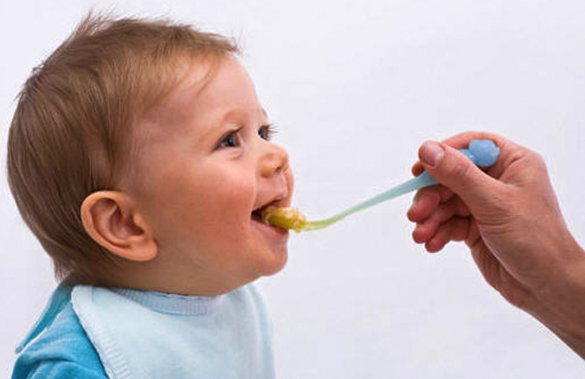The time has come to think about introducing solids into your baby’s diet, and for different reasons which may be relevant and suitable for your baby;
- Your baby has come of age somewhere between 4-6 months where the additional nutrition other than milk feeds is a necessary next step for growth and development
- Your baby is showing signs of needing the extra calories to grow eg. new night waking and hungry, his usual milk feed doesn’t sustain him for as long, showing interest in your eating,
- For medical reasons your Paediatrician/GP has recommended you begin solids eg. diagnosed reflux, not tracking to expected growth/weights gains
You can find lots of information and advice on “Doctor Google” about this subject, some strong advocacy supporting exclusive breastfeeding until baby is 6 months old, and other health professionals who believe that introducing solids before 6 months better supports the immune system and lessens allergic sensitivity towards certain food groups. If your baby is bottle fed then this maybe a different consideration again, depending on weight gain, age and appetite. This may also be dependent on your baby’s development and strength in head and neck control, which will allow a more upright position for feeding, optimising digestion and new chewing skills.
I like to guide parents to relevant evidence based studies and recognised authorities on this subject, so that your decision is well informed and fits comfortably with your own parenting beliefs but most importantly, your child’s individual needs. You may choose to be well advised and guided by your trusted Health Professional.
Websites with interesting and diverse content regarding introduction of solids;
http://www.allergy.org.au/health-professionals/papers/ascia-infant-feeding-advice
http://www.eatforhealth.gov.au/news-media/translating-science-behind-eating-well-and-staying-healthy
So depending on when you introduce solids (I am an advocate of sometime before 6 months as a general rule) you will start with easily digested, iron fortified rice cereal which is also gentle on the immune system. This is a good initial training food to encourage your infant to use and coordinate different mouth and cheek muscles, the palate and tongue in a whole new way. This takes a bit of practice of course, and can be mixed with breast milk, formula or cooled boiled water (yuk with water, my opinion only) and followed by pureed fruits such as apple and pear, offering each food separately to develop baby’s bland and immature palate, and no added salt or sugar please! You may start with one meal per day probably with the mid-morning milk feed which is offered first with solids to follow approximately 10-20 mins later. This way if there is any reaction to certain foods it happens early in the day and can be readily addressed.
Introduction of these first solids may span first week to 10 days, progressing to offering twice a day and including pureed vegetables (such as pumpkin, carrot, sweet potato and zucchini). From around 6 months of age you can introduce yoghurt, pureed meats such as lamb/beef mince and avocado, mashed well and veggies and fruit can be prepared in a more chunky consistency than puree as long as baby is coping with chewing and swallowing.
After 6 months it is your decision (along with guidance from your health professional) as to when you introduce wheat based products, whole milk, egg yolk and egg white, cottage and ricotta cheese, fish and so on. You can certainly introduce cool boiled water with a Sippy cup from 6 months and you can give baby his solids about 30 mins before his milk feed (although he will probably like his milk feed first thing in the morning and last thing at night while he still toddler). He is probably moving towards cutting down his milk feeds to allow for the extra calories/nutrition. Try not to leave too much time between his solids and milk feed or you may find he is overeating. By 8 months or so you can give him light snacks say after his lunchtime sleep to keep the energy levels up til dinner time.
Finger foods can be introduced around 9 months of age and make mealtimes fun by giving him different textured foods to feed himself, splashboards up! By 12 months of age he should be eating the same foods at mealtimes that the rest of the household enjoys.
It’s all good fun, and mealtimes will be pretty messy, I always give my bubs the opportunity to explore foods with their hands and this can sometimes create good diversion tactics as you get those spoonfuls into his mouth. It also helps them learn to start feeding themselves, because everything goes into those mouths!
But be mindful that with babies/toddlers, mealtimes need close supervision by an adult at all times to prevent any choking/gagging mishaps.
So strap on your plastic raincoat, a plastic sheet under the high chair, and many, strong washable bibs for junior because life is about to get very messy but a whole lot of fun!



